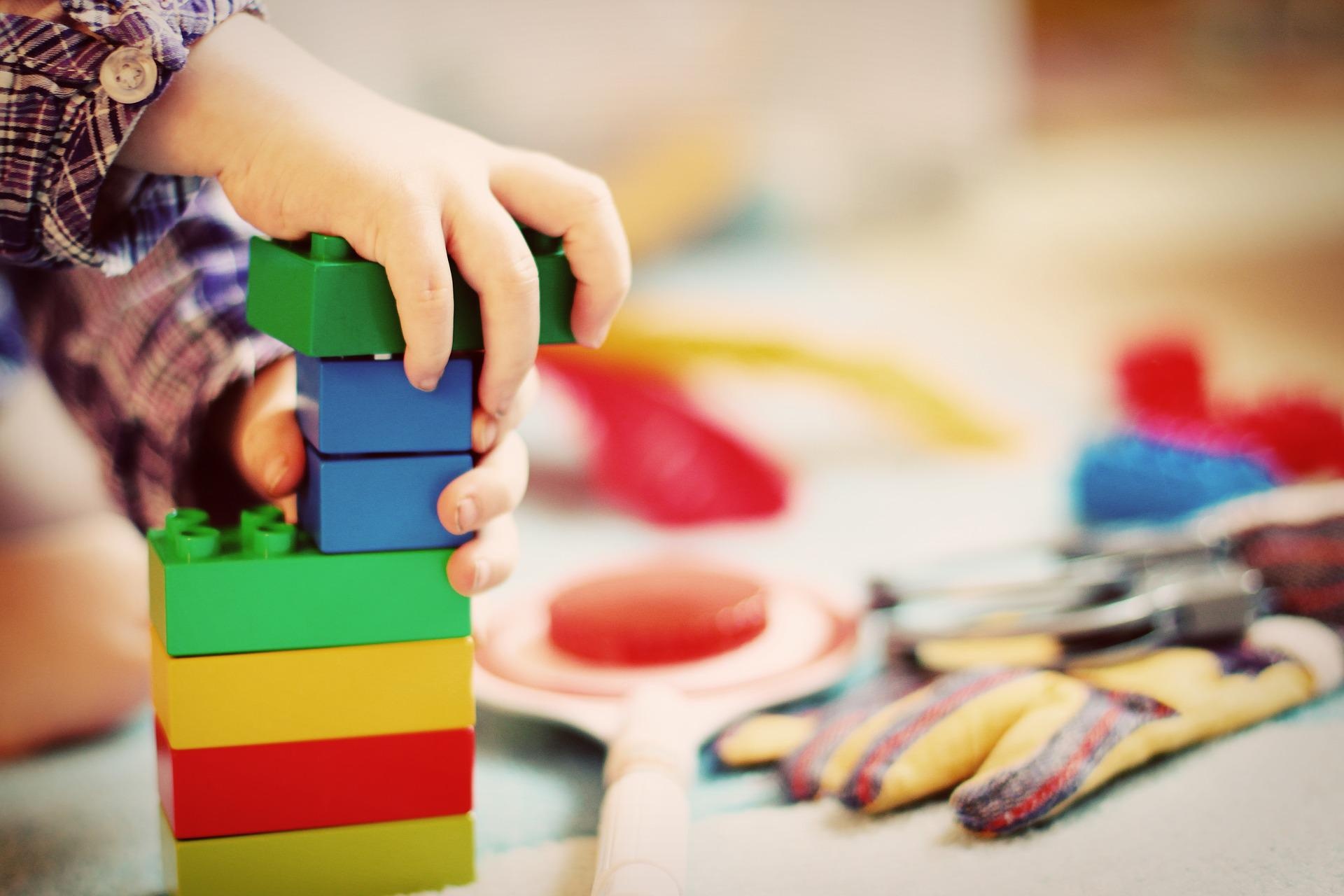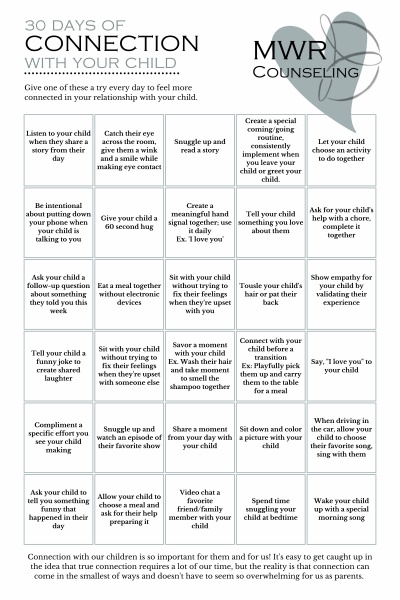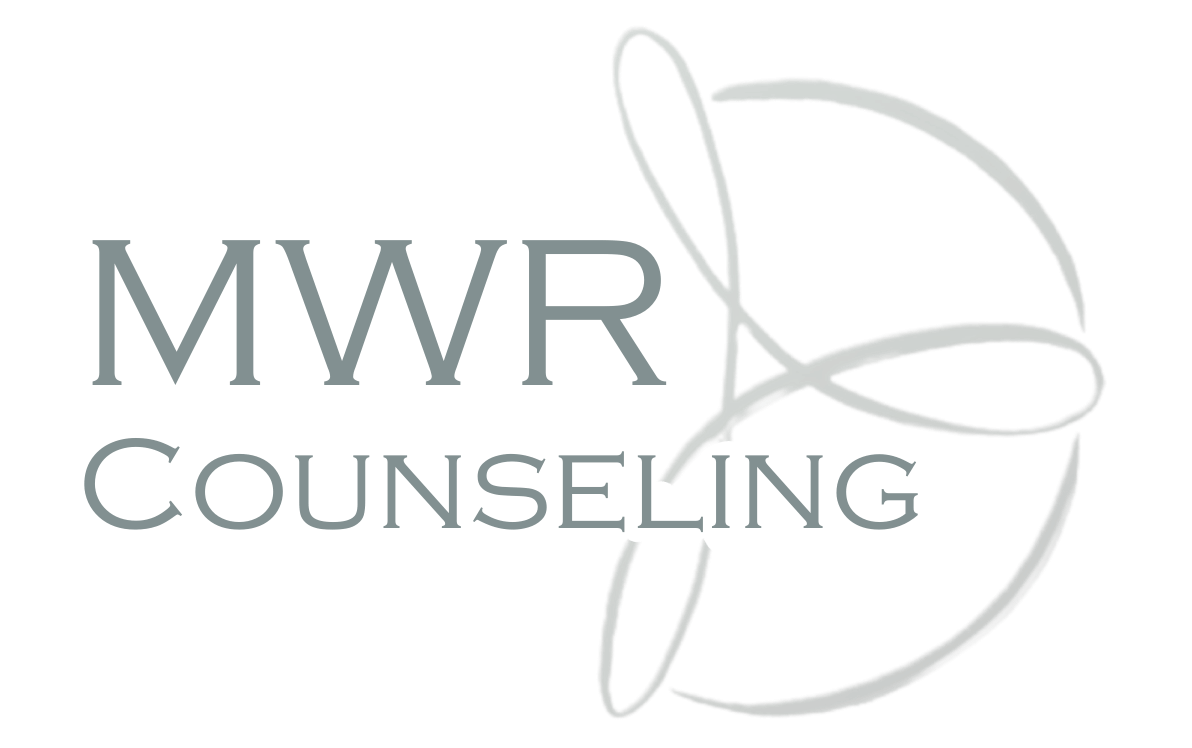Bringing Connection to Your Relationship with Your Toddler

by Erin Thiemann, LMHC, PMH-C
This blog post is part of a series on connection written for Cedar Rapids Moms. The original post can be found here.
Parenting toddlers is not always the most enjoyable or easy task.
The “terrible twos” and “threenagers” are not comforting terms; these years are times of intense development. And some days that means finding ways to connect with your tiny human can be challenging. The importance of connection is well researched and heavily promoted within professional and parenting communities. Hello pressure. Nice to meet you.
As parents, we can feel the need to be attentive and connected to our children at all times. And when we are not present, when we lose our chill, and when we try to take time for ourselves, the guilt and shame attached to these moments can feel huge. The high expectations we place on ourselves to be a good parent can be one of our biggest barriers to connection – especially with toddlers who lack the ability to effectively communicate their needs and wants. 
Toddlers can often ask for connection in really frustrating ways.
They scream, cry, hit and throw things. They push every known (and some days, new and undiscovered) boundaries. And parent can often, and understandably, react in ways that discourage connection. In these moments, both parent and child often are left feeling misunderstood, alone, and helpless. But there is good news. Connection is more about quality than quantity. Getting down on your child’s level, making eye contact, and responding with validating statements of what you are seeing and hearing from them facilitates more connection than we often realize or acknowledge.
Consider creating predictable play time with your toddler.
This time can be short, 10-30 minutes, but strive to make it a time when your toddler is in charge of the activity, with minimal interruption or correction from you. If you find yourself uncomfortable with imaginary play or following the convoluted storyline your child has come up with, trying asking them to how to play the game. Or to encourage them to show you what to do. In these moments, you provide your child the change to explore leadership and experience empowerment, while taking pressure off of yourself. Because let’s face it, you would likely end up doing it “wrong” by your kiddo’s standards anyway. If possible, make this play time a scheduled daily activity that your toddler can rely on. That consistency creates security for your toddler and decreases their need to bid for your connection in those other, all too frustrating, ways.
For more tips on creating shorts bits of connection, see our “30 Days of Connection with Your Child” graphic!





